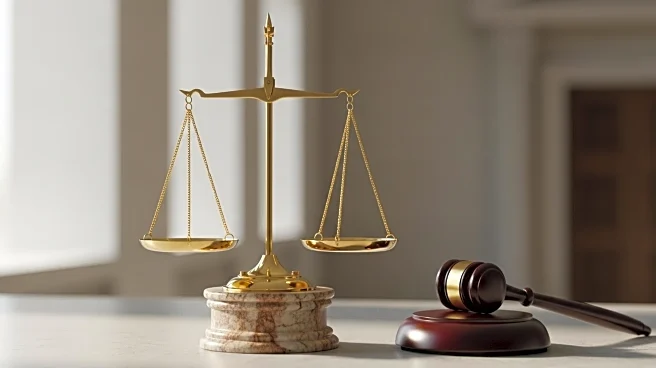What's Happening?
Sophie Roske, a 29-year-old transgender woman from Simi Valley, California, has been sentenced to 97 months in federal prison for attempting to assassinate Supreme Court Justice Brett Kavanaugh. The plot, which Roske attempted to carry out on June 8, 2022, involved traveling from Los Angeles to Kavanaugh's home in Chevy Chase, Maryland. Roske was found with lock-picking tools, a Glock handgun, and ammunition. Despite prosecutors seeking a minimum of 30 years, the district court in Maryland imposed an eight-year sentence, which has been criticized by Attorney General Pam Bondi and other officials. The Department of Justice plans to appeal the sentence, arguing it does not reflect the severity of the crime.
Why It's Important?
The sentencing of Sophie Roske highlights ongoing concerns about political violence in the United States, particularly targeting public officials and judicial figures. The case underscores tensions surrounding the Supreme Court's decisions and the potential for politically motivated violence. The Department of Justice's decision to appeal the sentence reflects a broader effort to ensure that such acts are met with significant legal consequences. This case may influence public discourse on the security of public officials and the judicial system, as well as the measures needed to prevent similar incidents in the future.
What's Next?
The Department of Justice's appeal of the sentence will likely lead to further legal proceedings, potentially resulting in a revised sentence for Roske. The appeal process may involve additional scrutiny of the case details and the factors considered during sentencing. This development could prompt discussions among lawmakers and legal experts about the adequacy of current laws in deterring and punishing politically motivated violence. Stakeholders, including political leaders and civil society groups, may advocate for stronger protections for public officials and more severe penalties for such crimes.
Beyond the Headlines
The case raises ethical and legal questions about the balance between mental health considerations and accountability for violent actions. Roske's defense highlighted her mental illness, which may influence future legal debates on how mental health issues are factored into criminal sentencing. Additionally, the incident may lead to increased security measures for Supreme Court justices and other public officials, reflecting broader concerns about their safety in a polarized political climate.









